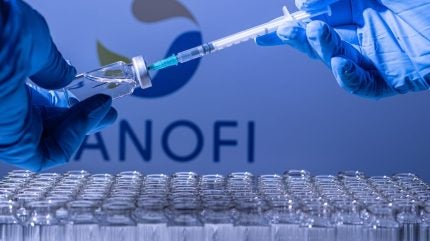
Sanofi has reported the latest data from a Phase II clinical trial of a cluster of differentiation 40 ligand (CD40L) monoclonal antibody, frexalimab, in patients with relapsing multiple sclerosis (MS).
The double-blind, randomised, placebo-controlled trial assessed frexalimab in relapsing MS patients who were randomised into a 4:4:1:1 ratio.

Discover B2B Marketing That Performs
Combine business intelligence and editorial excellence to reach engaged professionals across 36 leading media platforms.
They received either 1,200mg intravenous dose every four weeks of the therapy, a 300mg subcutaneous dose every two weeks or a placebo.
Following 12 weeks of treatment, subjects who received a placebo switched to frexalimab, entering the open-label part B portion of the trial, which is presently underway.
According to the trial findings, frexalimab was found to reduce a critical biomarker linked to MS nerve cell damage, confirming the rationale for using this unique mechanism in the Phase III MS trial aimed at delaying disability development.
After one year of treatment, plasma levels of neurofilament light chain (NfL), a biomarker of nerve cell damage that is generally increased in persons with MS, dropped significantly.

US Tariffs are shifting - will you react or anticipate?
Don’t let policy changes catch you off guard. Stay proactive with real-time data and expert analysis.
By GlobalDataSubjects who received high-dose frexalimab saw a decline of 41% in plasma NfL levels from baseline while those in the low-dose frexalimab had a 35% decrease.
Sanofi Neurology Development global head Erik Wallström said: “People with multiple sclerosis need new high-efficacy treatment options that target disability progression, which remains an unmet need.
“These results, alongside the previously reported Phase II efficacy and safety results, further show that frexalimab’s novel mechanism of action has the potential to deliver meaningful improvements for people living with this chronic and debilitating disease.”The company also launched global Phase III trials of frexalimab in relapsing MS and non-relapsing secondary progressive MS and is enrolling patients.
Recently, Sanofi reported positive results from a Phase III trial of Dupixent (dupilumab) in one to 11-year-old children with eosinophilic esophagitis (EoE).



